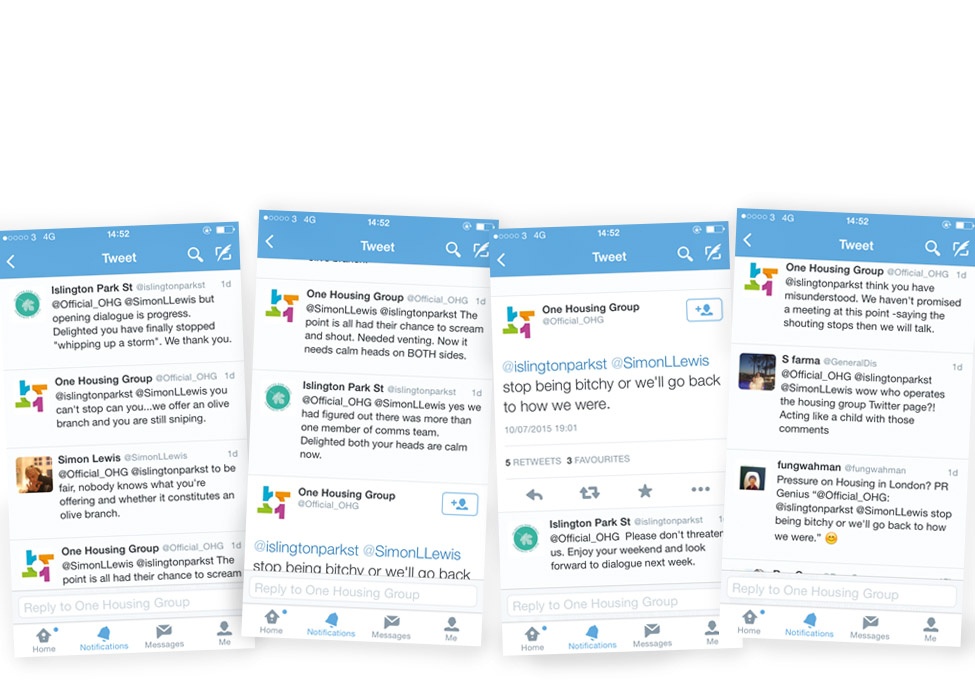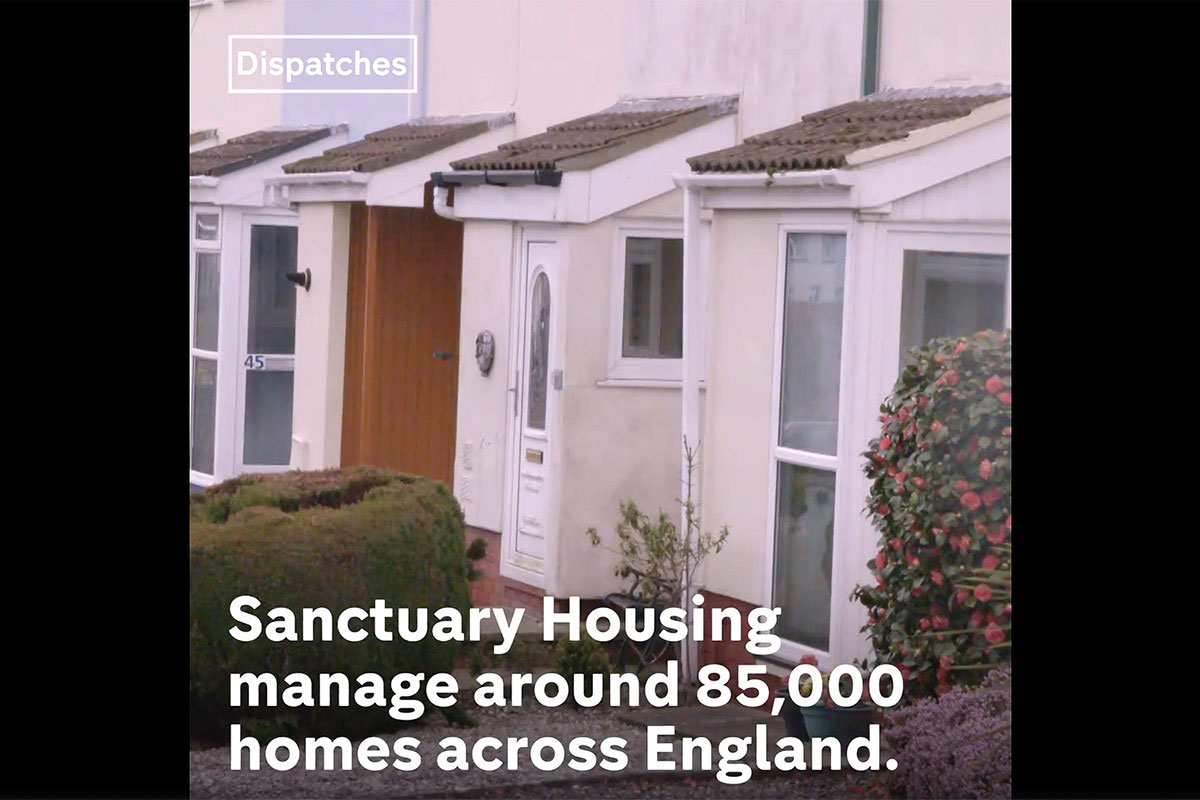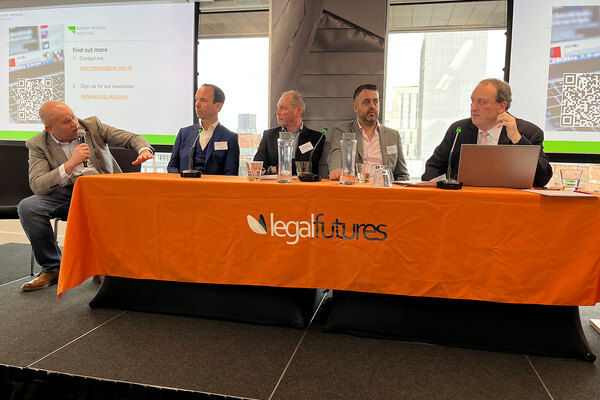You are viewing 1 of your 1 free articles
The social housing network: how Facebook is changing the relationship between social landlords and tenants
Facebook groups have given tenants a new way of ramping up pressure on landlords to improve performance. But does this mean the relationship has to be adversarial? Alex Turner finds out
It is fair to say that Facebook does not get much good press these days. Implicated in tax-dodging, data-harvesting and electoral malpractice and abandoned by a growing number of young people, it is seen by many as representing the worst excesses of big tech.
Nonetheless, the world’s biggest social media platform still does a lot of things for a lot of people – including enabling them to coalesce around common interests.
Earlier this year, a Channel 4 Dispatches documentary, which painted an unflattering picture of 45,000-home Sanctuary Housing’s maintenance standards, highlighted how Facebook groups are providing a conduit for social housing residents to air grievances.
Almost all housing associations now operate their own social media channels, as part of authorised resident engagement structures. But Sanctuary is not the only organisation to face a challenge from tenants who are instead gathering in independent groups, many of them off limits to staff.
“Social media gives tenants a new place to engage with each other and discover and raise common issues”
Giles Peaker, Anthony Gold
But what can tenants and residents achieve from organising on Facebook groups – and can such communities open fresh communication channels with landlords? Inside Housing spoke to people on both sides of the divide to try to find out.
As housing associations have become less geographically anchored, and social housing less based on mono-tenure estates, the online space has enabled dispersed residents to pool frustrations that might otherwise have remained isolated.
“Social media gives tenants a new place to engage with each other and discover and raise common issues,” says Giles Peaker, solicitor at Anthony Gold, a firm that specialises in housing disputes. “This seems to be filling a gap left by the lack of more traditional forms of representation like tenants’ and residents’ associations.”
Inside Housing has spoken to members of several residents’ Facebook groups to assess how the platform is changing interaction with landlords.
Underpinning many complaints are accounts of poor experiences relating to landlords’ communication channels. Tenants complain that they are repeatedly fobbed off when they report recurring maintenance issues. Some say critical exchanges on their housing association’s official Facebook pages get deleted, with parties sometimes blocked. That means those conversations must be had elsewhere, where landlords do not police the debate.
Yet those who speak to Inside Housing say Facebook groups have given them not just a safe space to vent to others with similar problems, but also one where they can access support, expertise and the tools to find solutions.
“Others sharing their experiences and suggestions is very useful, especially in regard to how to contact Clarion and advice around record-keeping and procedures,” says one member of the Clarion Tenants Support Group. “I now feel more empowered to push harder for resolutions.”
Besides acting on information themselves, some members say they have used the groups as a platform from which to access legal advice.
“I joined the Sanctuary Housing Independent Complaints Group in 2018 and was directed to solicitors,” says Amanda Antrobus, who featured in the Dispatches investigation and is still in dispute with her landlord over the condition of her home. “If it wasn’t for that advice, I doubt Sanctuary would have acted.”
A senior manager at a legal partnership specialising in housing disrepair, who comments on condition of anonymity because of their employer’s media policies, notes dryly that housing associations “tend to deal with problems quickly when lawyers get involved”.
“[In some cases] that’s a complete reverse of how tenants find them,” they add, citing factors ranging from inflexible appointment-making, to slow central purchasing mechanisms, to repairs contracts that disincentivise operatives from repairing things thoroughly.
Sanctuary denies that the involvement of lawyers makes a difference to its response. “We aim to give everyone the same quality and speed of service regardless of how they contact us or who is advocating on their behalf,” says Simon Clark, group director of housing at the association.
Social media does not necessarily create an adversarial relationship between housing associations and residents; indeed, members of Facebook groups say they want to bring landlords to the table for discussions about action on common issues.
Mark Read, who works as a business coach and facilitator, says that his “one objective” after becoming active on the Clarion Tenants Support Group was to broker a meeting between group members and senior leaders at the association.
“For me, all change comes from human-to-human communication,” he says. “I was looking for, first, a meeting, and then for them to agree to meet people [chosen by the group] in their homes.”
Admins from the Sanctuary Housing Independent Complaints Group and Hyde Housing Independent Resident Group also tell Inside Housing they have made overtures to their landlords on the subject of direct talks. The latter group wrote in September 2019 to new Hyde Group chief executive Peter Denton setting out its grievances and suggesting a meeting to begin rebuilding trust, stating that “our overarching aim is to have a good relationship with Hyde”.
“For me, all change comes from human-to-human communication”
Mark Read, Clarion Tenants Support Group
Of the three groups, only members of the Clarion Tenants Support Group – including Mr Read – have sat down recently with housing association staff. Parties from both sides say it seemed like a positive step.
“We got lots of issues out on the table. It felt beneficial and helpful; we talked about future engagement and began to develop a strategy,” says Vicky Bonner, director of housing at Clarion.
But following the summer meeting, material appearing to show a group admin and moderator abusing another member online was sent to Clarion. The association has since refused any further meetings, on the basis that it could be seen to be condoning unacceptable behaviour, unless its staff are allowed full access to the group.
Group admins acknowledge that there was an exchange, now taken down, that “turned unpleasant”. But they say that it was an isolated occurrence and that selective deleting of posts, before the whole thread was removed, had made it look more one-sided than it was. Whatever the full truth, the situation currently looks deadlocked.
Snooping in Southwark
Last year, the London-based Ledbury Action Group of tenants and residents issued warnings via solicitors after alleging that their landlord, Southwark Council, had been covertly spying on and copying material from their closed Facebook group. The council denied this, but the tenants and residents say they have experienced instances of their landlord’s employees joining closed groups without announcing themselves.
As well as snooping being unethical, social media posts fall within the scope of ‘personal data’ under General Data Protection Regulation legislation, which landlords will fall foul of if they retrieve and share posts. Councils are covered by the Regulation of Investigatory Powers Act 2000, under which ‘directed surveillance’ – which covers spying on Facebook groups – requires specific authorisation.
Housing association representatives tell Inside Housing they are aware that some staff have joined closed Facebook groups, but that they discourage it. “Our policy is clear. We say, ‘Don’t join, and definitely don’t pretend to be anything you’re not,’” says Kate Reynolds, head of external affairs at Sanctuary.
Paul Singleton, director of customer experience at Hyde, also says that staff have written to admins of the Hyde Housing Independent Resident Group (HHIRG) – on which content is publicly viewable – after seeing derogatory posts about individual officers. “Upon receipt of one of these letters, an HHIRG admin published a pinned post stating that offensive personal attacks on Hyde Group staff and involved residents would be deleted,” he adds.
Asked why Hyde is not meeting with members of the Facebook group, Mr Singleton says that residents should stick to official channels if they want to discuss problems. With group admins saying they have no trust in those channels, the two sides seem, as with Clarion, to be at an impasse for now.
But Sanctuary’s Mr Clark strikes a more conciliatory tone, insisting that he is willing to meet members unconditionally.
Kate Reynolds, head of external affairs at Sanctuary, adds that there has been a “breakdown of trust” with some tenants and acknowledges that the association “has to work to rebuild it”.
Interacting with resident groups outside official channels is something housing associations should not dismiss, says Catherine Ryder, director of policy and research at the National Housing Federation.
“[But] I don’t think there is one answer [to how to engage] – it will depend on the nature of groups and their issues,” says Ms Ryder, whose organisation is exploring how relationships between landlords and tenants can be improved, via its Together with Tenants initiative.
A straightforward olive branch can go a long way, Mr Peaker believes. He adds that landlords that treat groups with suspicion “will simply inflame an oppositional culture, which is unlikely to go well for [them] overall”.
“Social landlords need to recognise and address real issues raised, without deflection or denial, and take these groups seriously in addressing their services,” he says.














